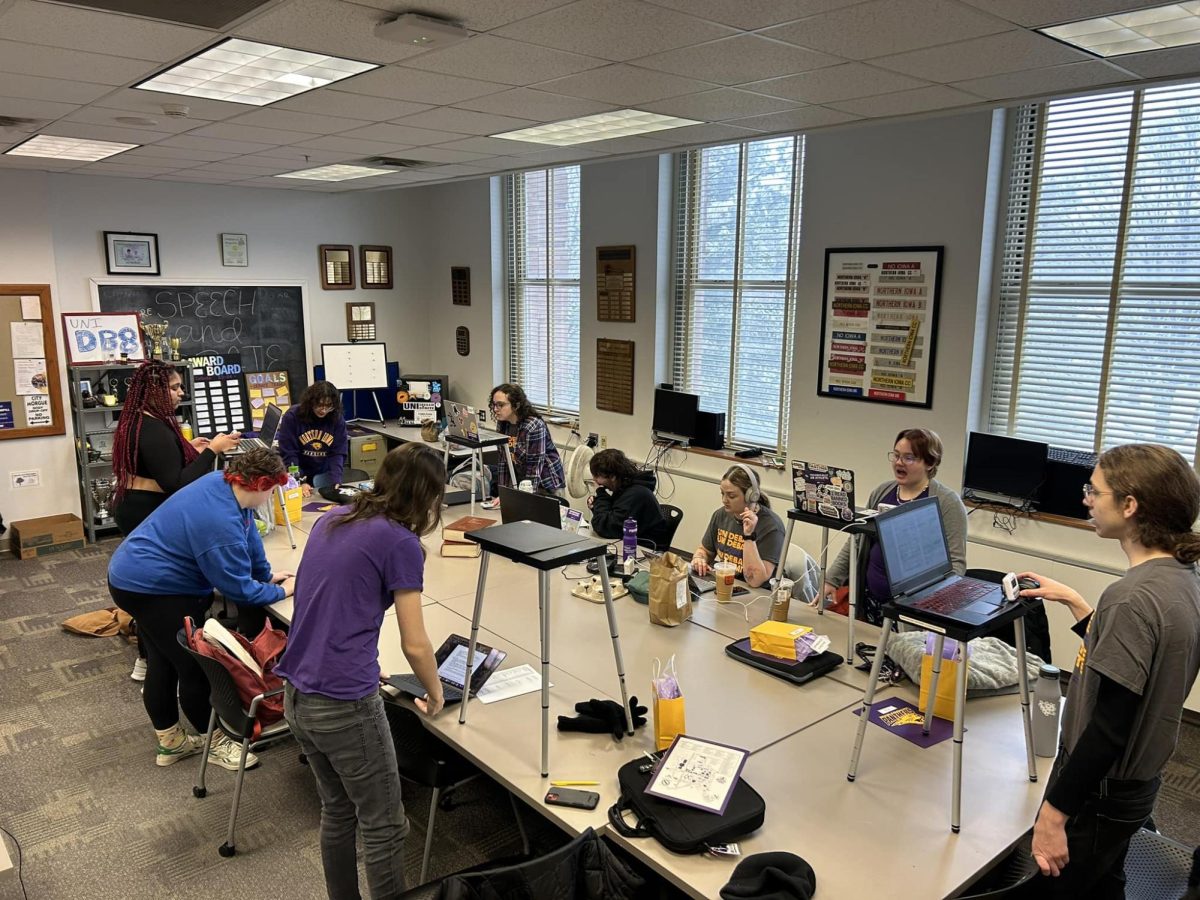As a college student, Im required to do quite a bit of reading. Ive had to read chapters in textbooks, articles from online publications, full-length fiction and nonfiction books and so on and so forth.
With all of those assigned readings, in addition to the typical workload of your average college student, I havent had much time to read for pleasure, or at least as much as I used to.
Fortunately, I have a nephew and, despite the fact that he is too young to be able to read, he loves to sit down and read a good book (if you can call flipping through the pages and pointing at each of the illustrations reading).
Over spring break, I was able to spend some quality time with him, and together we were able to read Laura Numeroffs If You Give A Mouse A Cookie.
Now, for those of you who are unfamiliar with the classic childrens book, If You Give A Mouse A Cookie is about a child who gives a cookie to a mouse, only for the mouse to then request a glass of milk and then a mirror and then a pair of scissors and so on, until he ends up asking for another cookie.
Clearly, the book is about cause and effect and how people can develop patterns of behavior, allowing us to predict what might happen next. Or is it?
Once I had finished the book, I could not help but look beyond the basic plot of a young boy and a mouse, searching for a deeper meaning or theme.
My nephew, on the other hand, finished the book and immediately flipped it back open to a random page, so that he could continue to admire one of the books wonderful illustrations.
He wont fully comprehend the message of If You Give A Mouse A Cookie for quite some time, but that did nothing to hinder his enjoyment of the literature.
As I observed him tearing through the book with reckless abandon, I couldnt help but feel a sense of envy at his ability to take pleasure in something as simple as an illustration without having to analyze or interpret or dissect it.
Dont get me wrong: I love subtext as much as the next avid reader, and Ill admit that I find that the most challenging works are often the most rewarding.
Ill even concede that literature can be both challenging and entertainment, without having to sacrifice one for the sake of the other.
But sometimes I think I take for granted the luxury of being able to turn my brain off and simply enjoy something as good old fun.
And by no means is this limited strictly to literature.
For example, I saw Jack the Giant Slayer in theaters several weeks ago and, while it has become somewhat of a punching bag for critics and I doubt you will be hearing its name repeated often at the next Academy Awards, I was able to sit back and enjoy it for the light-hearted entertainment that it was intended to be.
It didnt challenge me by any means, but it did stir memories of a childlike wonderment I once possessed, harkening back to a time when I was more concerned with whether or not the hero of the story was going to save the damsel in distress, rather than attempting to decide if the fire-breathing dragon was an example of symbolism.
This is something that, as a college student about to graduate and enter the real world, Ive come to value more than ever, and I think there are times when we all can find ourselves victims of thinking that everything has to have a distinct purpose or meaning.
We search for subtext and hidden meanings in literature, film and different forms of art because we are taught to examine these mediums deeper than surface level.
We take certain jobs and join certain student organizations because we believe that they might provide benefits and opportunities for advancement down the road, whether in college or in your post-graduate career.
We assign meaning and reasoning to our actions because we are taught that life is short and precious and that there is not a moment to be wasted, that every step we take should be toward a specific and achievable goal.
What Im suggesting is that it doesnt hurt to take a detour once in a while.
Take a break from the challenges of the real world and escape even for a short while, because I assure you, those challenges will still be there when you get back.
I believe the beloved childrens author Dr. Seuss said it best: I like nonsense; it wakes up the brain cells. Fantasy is a necessary ingredient in living; its a way of looking at life through the wrong end of a telescope. Which is what I do, and that enables to you laugh at lifes realities.







